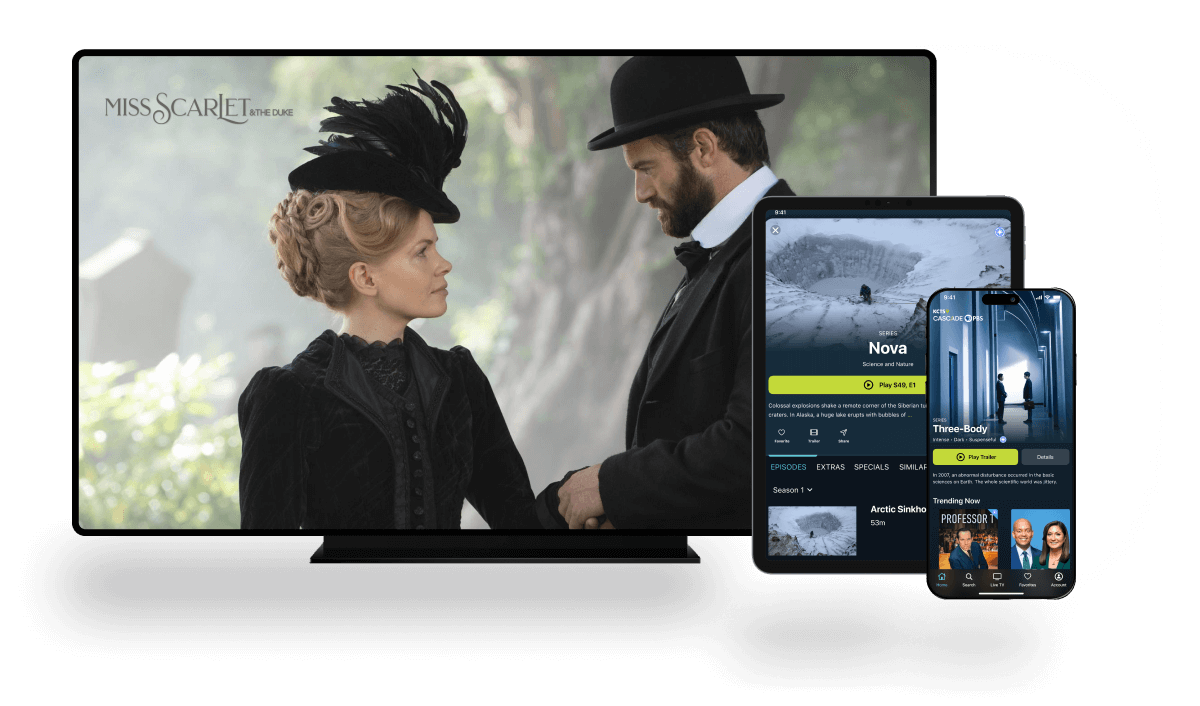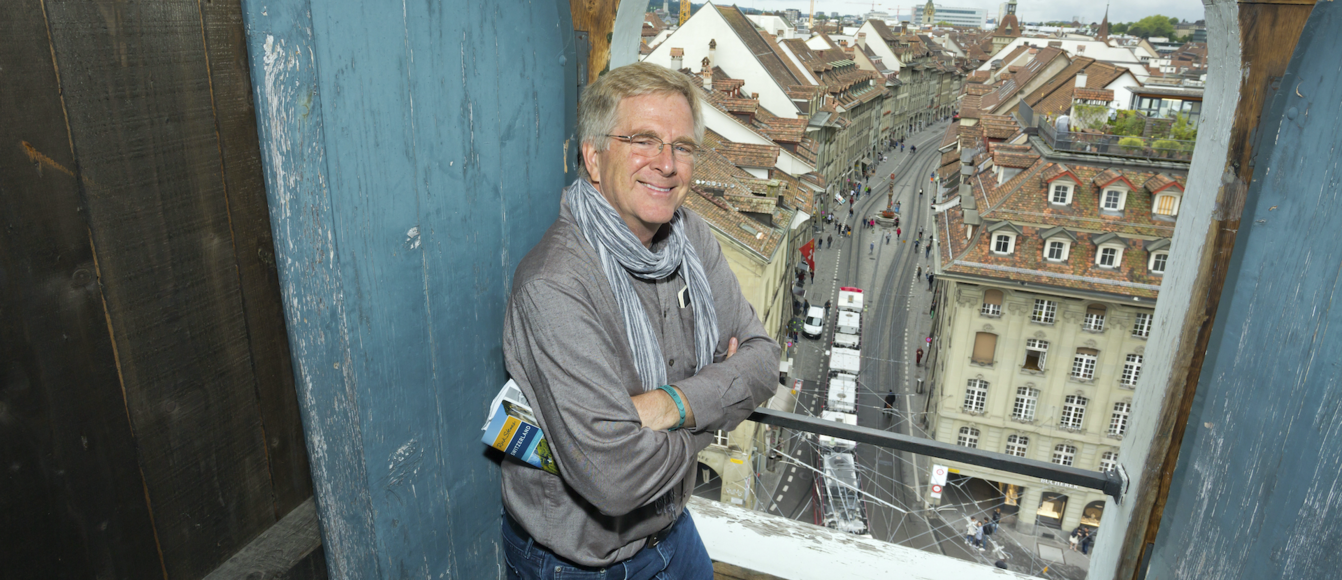
Rick Steves Answers Questions from Viewers Like You
After his KCTS 9 virtual event, Rick Steves took the time to answer questions from the audience.
On October 14, Rick Steves hosted a virtual event with KCTS 9, A Conversation with Rick Steves. Participants were able to submit their own questions for Steves to answer. Considering that we only had a few minutes to get through the audience's questions during the event, Steves wanted to make sure he had the opportunity to answer as many of your questions as possible. So, he answered 30 more in writing after our Zoom call ended!
You can watch the virtual event, A Conversation with Rick Steves, online now. And, you can read his answers to audience questions below. Maybe, he answered your question!
You asked the questions. Here's what Rick Steves answered ...
1. When will you be doing more TV shows? When will they be airing on PBS?
We’ve made a new series every two years, like clockwork now for 30 years. Our latest series debuts this month, and then, God willing, if the past is any indication of the future, we’ll have a new series in the fall of 2022.
2. How are your guides doing given the pandemic?
Our tour guides are independent contractors with no work. Many are just hunkering down and finding other work, while others are trying to make a little money through virtual travel and other online activities. I’m determined to help them as much as I can until we’re able to offer them solid work again on our bus tours. You can see their adventures and activities in the Rick Steves’ Europe “Guides Marketplace” at www.ricksteves.com/tours/guides-marketplace.
3. How did you decide to keep your staff on as community helpers?
I’m paying my office staff three days a week plus health care whether there is enough work to do or not. Some departments are slammed, while others have little to do. I’m organizing a “volunteer corps” so that those without a lot of Rick Steves’ Europe work to do have the option of volunteering for local organizations where help is needed. So far, we have the equivalent of about 15 full-time employees working for food banks, senior centers, Meals on Wheels and with the cities of Edmonds and Lynnwood to help seniors and maintain parks. I expect that number will grow to about 25 employees in the coming months. I see it as a kind of entrepreneurial good citizenship for a company like ours to help out in this way.
4. Of all the places you have visited, and all the people you have met, what do you miss the most regarding your travels?
I miss learning from my experiences — and then sharing those lessons through my work. It’s such good living to work hard and then let the lessons I’ve learned help others. I also miss eating in France and Italy!
5. Have you considered making any changes to the general format of your tours once we start traveling again?
I think we’ll have smaller groups (maximum 25 on a 50-seat bus, rather than 28), and we’ll remind our tour members that things will not be as predictable as they were in the past — but that with the right spirit, we’ll have the time of our lives together on tour.
6. What new procedures will you put in place to enhance the health and safety for your group tours and what types of precautions are you requiring/expecting at the hotels you are booking?
I don’t plan to re-start our tour program so quickly that this will be a major concern. We will eventually throttle up, and we will embrace whatever common sense, science-based health and safety measures are recommended. But, again, I don’t think we’ll have to make any major changes by the time our tours start up again.
7. What thoughts do you have about how travelers from the United States might be received following the pandemic and all of the ongoing political turmoil in other countries?
Americans will be received with a warm welcome — and, in tourism economies that will be very hungry for business, with great enthusiasm.
8. What's your number one recommendation for enhancing civility here and around the world?
Travel and get to know — and better understand — the other 96% of humanity. As you travel, strive to get out of your comfort zone and learn from others. And then come home and work to help our country be a positive member of the family of nations.
9. Did you really start this business by renting a VW bus, arriving at a town and sending your fellow travelers on different missions to find the best hotel, restaurant, etc? If so, how long was the typical stay in the village and what was the approximate per person tour cost?
Yes, my first tours were communal ventures: eight people in a minibus. We paid a few hundred bucks each and had no reservations. Each evening before hitting the sack, we’d debate what we’d do the next day, and when we arrived at our next destination, we’d “fan out and find rooms,” gather at the minibus to compare notes, and take the best deal on rooms we found. It was a great way to start a tour program. (My main way to promote it was through the classes I taught at the University of Washington’s Experimental College.)
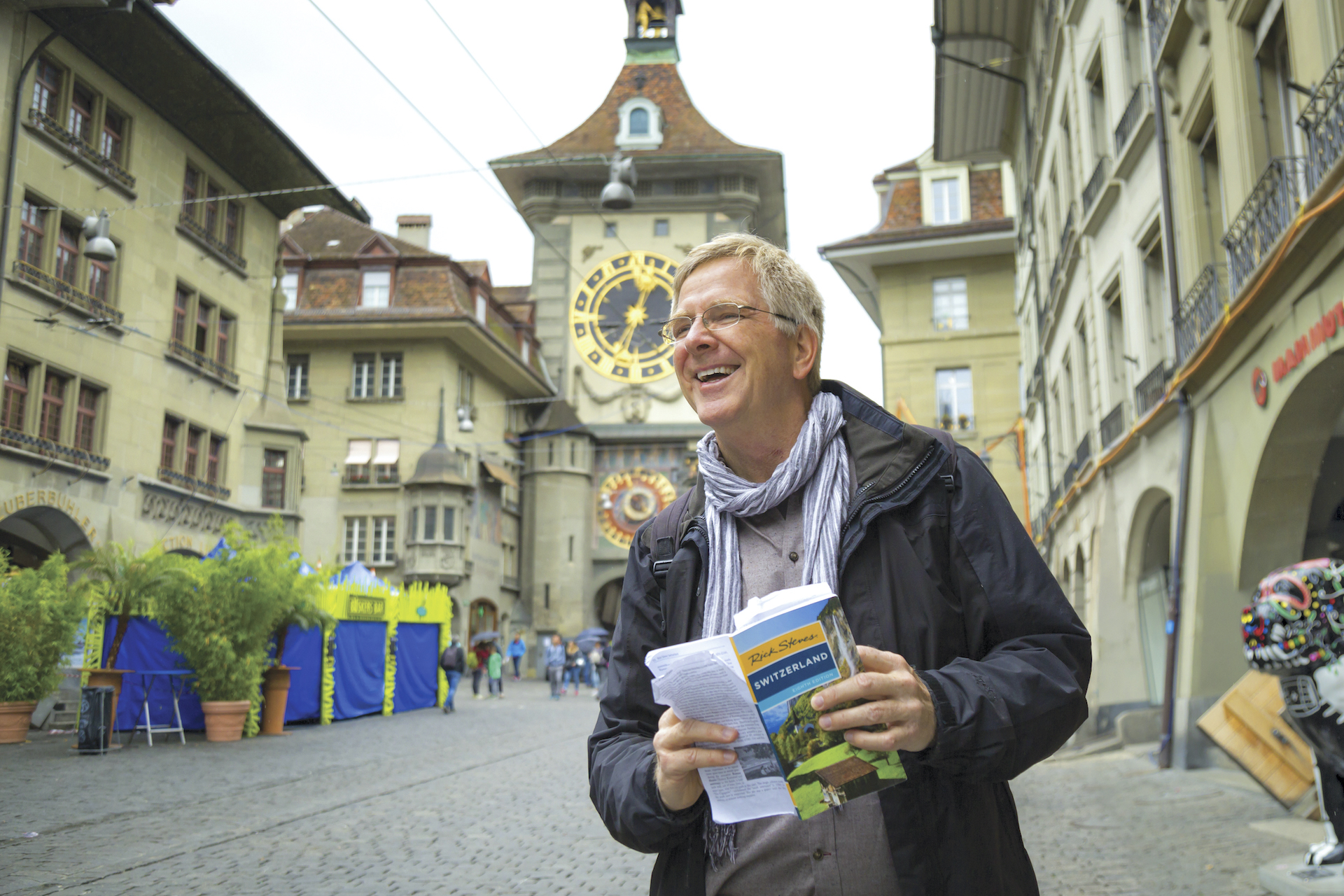
10. What were the key influences that shaped your views towards social justice and compassion?
Traveling to Central America during the Sandinista/Contra era with an educational tour company (the Center for Global Education at Augsburg University) — and complimenting that first-hand experience with books by Erik Dammann, Jack Nelson-Pallmeyer and Noam Chomsky (often read on my parents' yacht, surrounded by very conservative people). Erik Dammann founded a Scandinavian political movement called “The Future in our Hands,” which I was an active leader for in the Pacific Northwest. That + my Christian faith = my version of Travel as a Political Act.
11. How does your faith inform your travel?
As a Christian, I see all of us as equally precious children of God – and I see travel as a great way to get to know the family. I am never lonely on the road because I see the road as Church, and I have friends in high places. As an American citizen, I think an effective and appropriate way to “love thy neighbor” is to vote with my Christian values in mind while remembering that American elections impact people south of the border even more than people in my community here at home.
12. I know that you are invested in making our world a better place through travel. One of the ethical challenges to traveling can be the impact it can have on the environment, especially when it comes to transportation, disposable supplies, paper waste, etc. Do you have any tips for eco-friendly ways to travel?
Travel is a valuable activity for many reasons. It brings our world together, it’s a powerful force for peace, and it helps us live more fulfilling lives. But it’s also hard on the environment. I think an ethical traveler's main responsibility is to mitigate the carbon offsets created by their trip (with the most significant source of carbon being the flight there and back). Making your trip carbon neutral is not at all heroic — it’s just ethical. And by paying what’s essentially a carbon tax, you can “zero out” your carbon. Last year at Rick Steves’ Europe, we gave ourselves a $1 million carbon tax ($30 for each traveler that we took on our tours in 2019) and invested that in helping farmers in the developing world employ climate-smart agricultural practices. And in doing so, we flew carbon neutral. We’re not helping — we’re just not hurting as much. It’s a good start, but we can do more. When it comes to disposable supplies and paper products, travelers should use the same common sense on the road as they do at home: recycle more and waste less. But the main thing is to come home inspired to be politically active to help turn our country green.
13. I appreciate your support of Bread for the World. How did your involvement come about? What do you do for the organization, and what does the organization itself do?
Bread for the World, simply put, lobbies for hungry people. It’s an advocacy group that primarily organizes churches to fight extreme poverty by contacting legislators on issues that impact hungry people. And Bread also negotiates on behalf of the hungry in Congress. I believe that the best way to leverage my philanthropic dollar is to support such advocacy. If our government comes up with another $1 or $2 trillion coronavirus relief bill, there will likely be $8 or $10 billion earmarked for hungry people (such as food stamps at home and smart development aid abroad) because Bread for the World fought for a place at the table and then lobbied effectively for hungry people. I think I generate about 10 percent of their annual budget, and, selfishly, I’ll take some joy in helping direct those vital funds to that important cause. I do what I can to raise awareness that we can help hungry people because it’s the ethical and right thing to do (in a “love thy neighbor” sense) or just because it makes our world a more stable place. Either way, it’s a good and practical investment of taxpayer dollars.
14. Sometimes the worst mishaps become the best stories. What unexpected event on your travels turned out to be wonderfully or humorously memorable?
I can never come up with a good answer to this question. It’s not that I’m the perfect traveler, it’s just that my mishaps are not that interesting. I screw up all the time with my TV work, and I’m a firm believer that if our crew can’t laugh as we work and enjoy each other’s company, the TV shows won’t be fun to watch. As you can see from our bloopers, we have plenty to laugh about, and we enjoy each other immensely.
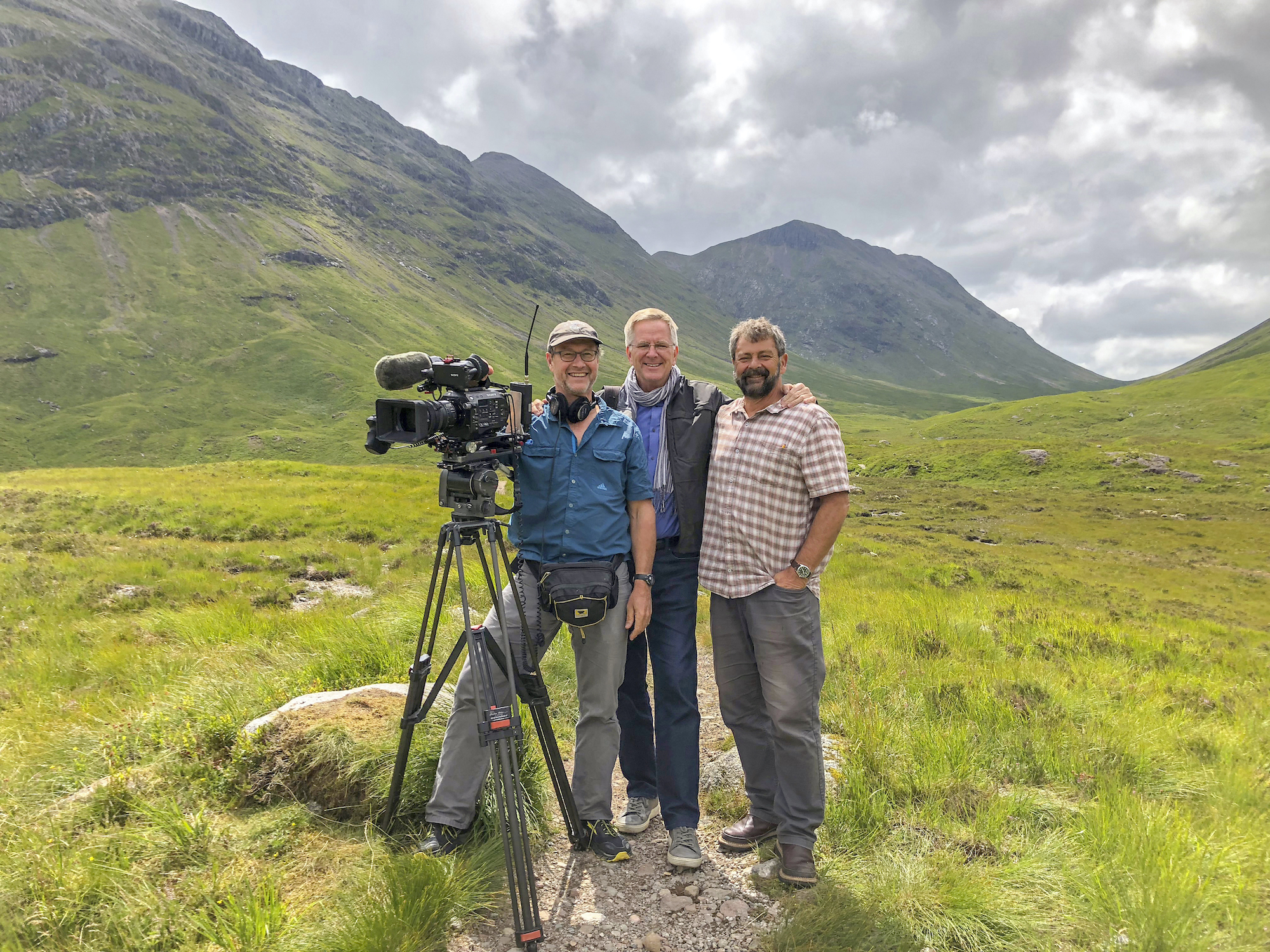
15. When you meet the locals featured on your programs or other kindred spirits on your travels, how do you build those relationships in the short time you're there? And do you/how do you nurture those relationships when you're back home?
If you just watch me on TV, it seems like I have friends everywhere I go in Europe. They are all working guides, and anyone can hire them, just like I do, to be their friend and guide. Over 40 years, I’ve developed a priceless-for-me network of “friends and fellow tour guides” who I recommend in my guidebooks and employ on Rick Steves’ Europe tour buses. It took me a while to realize what a wonderful investment it is to hire a private guide for my research work — but now, I’m the biggest fan of the value they bring. And my guides appreciate that. When I’m in town, I always have the joy of partnering with a local expert. It would be hard to make my guidebooks and produce our TV shows without these wonderful and hard-working teachers.
16. For first-time travelers outside the US, where would you suggest going first?
I recommend that first-time travelers appreciate the impact of culture shock and start mild, working their way into the more challenging countries. England, compared to anywhere else in Europe, is pretty dull. Don’t get me wrong … I love it. But go there first, when cream teas and round-a-bouts are exotic. Then go to France, and then Italy. You’ll be working into the harder places and better able to enjoy them all.
17. What do you do on a long haul flight to make yourself more comfortable in a usually uncomfortable seat?
In my seat, I get plenty warm, take off my belt, and empty my pockets. I take walks down the aisle, and I use noise-reduction headphones. I love a long flight because, with a fully charged laptop, I have six or eight hours of uninterrupted time to write and work. And when I want to sleep: a little chunk of Ambien.
18. We were pickpocketed in Barcelona last year. We were being careful but it still happened. How do we avoid this next time?
You weren’t careful enough. Don’t keep anything in your pockets. Zip everything up, wear it in a money belt, or leave it in the hotel room. Remember, thieves in Europe target Americans … not because they’re mean but because they’re smart. We have the good stuff in our pockets or day bags. Your day bag is probably the most dangerous place. Never put it down! You won’t get knifed or mugged … but there’s a good chance you’ll be the victim of a purse-snatching or pickpocketing.
19. If you could speak a foreign language fluently, which one would you pick, and why?
If it was just for fun, I’d pick Italian because I have more friends in Italy than any other country, I love the culture, and it’s fun to speak. But for practical reasons, I’d choose Spanish, as it would help me in two hemispheres — and because my son lives in Colombia and speaks Spanish.
20. We know you are a proud American. But if you were forced to live in another country, where would you live and why?
I’d live in Norway. I really like their social sensibilities, and I have Norwegian heritage, so I feel very at home there. But I have to admit that I would miss the free-wheeling business atmosphere that entrepreneurs enjoy here in the USA.
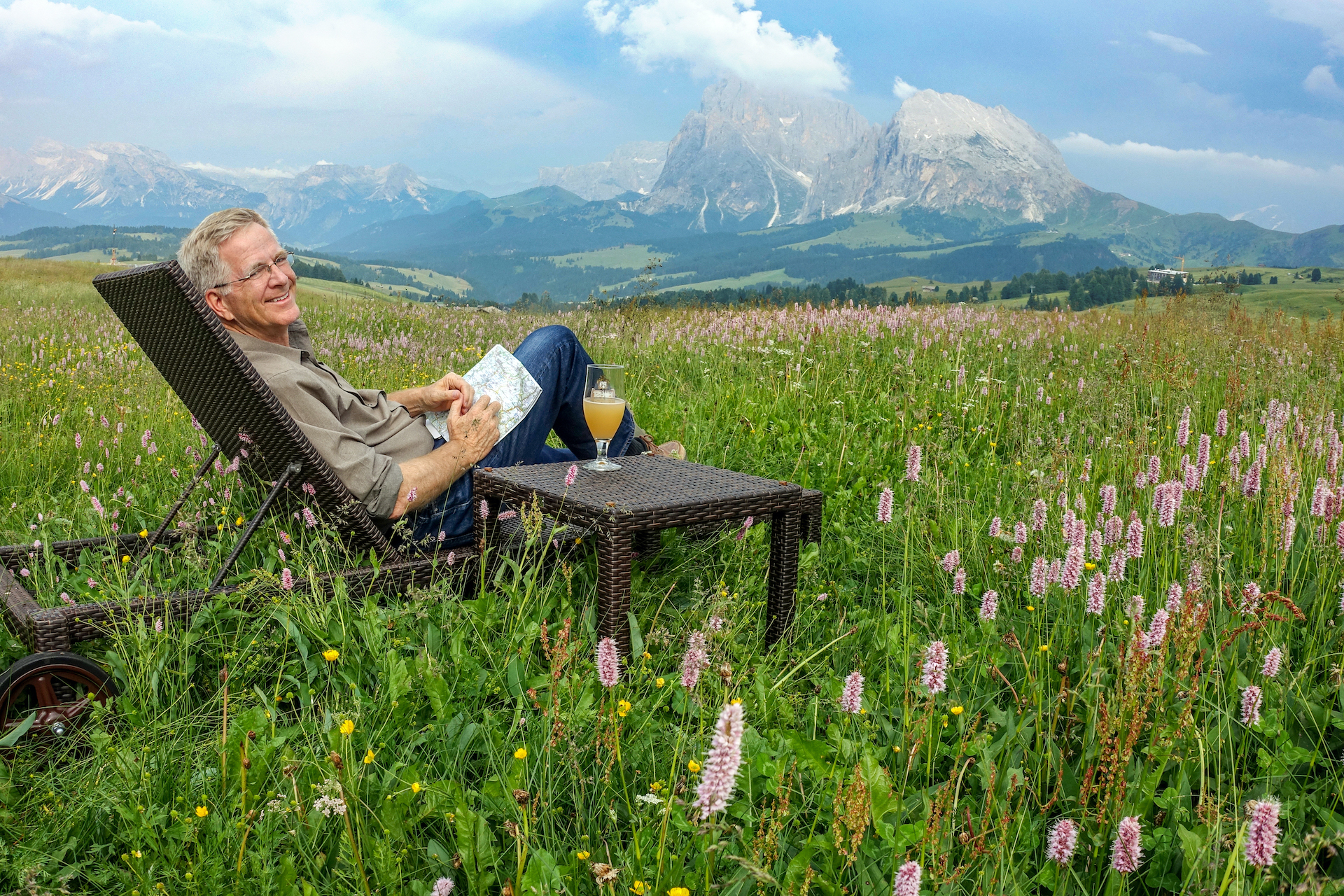
21. What does your travel journey look like from 60 to 90 years old assuming average health?
Great question. I’ve been thinking about the same thing. I recently interviewed Paul Theroux, who’s 79 years old, on my radio show — and I was inspired by how on his latest writing project (in Mexico), he bummed around like a vagabond kid. The big question for me is, will I spend the rest of my traveling days working on my Europe beat as a travel teacher/guidebook writer/tour operator, or will I free myself to visit places that I really love (India, Japan, Indonesia, Morocco, etc.), or will I venture to new places I know nothing about (the South Pacific, China, sub-Saharan Africa, South America, even parts of the USA)? Or will I spend more time settled here in the beautiful Pacific Northwest? I’m always inspired when I meet someone 20 years older than me having a great time on the road, free-spirited and young-at-heart. As my tour groups have taught me, “age only matters if you’re a cheese.” (Also, “it’s never too late to have a happy childhood.”)
22. What is your favorite hidden gem on planet Earth and why? When did you first visit and why would you recommend it for travelers?
Bali, Kashmir, Nepal, Sri Lanka, Thailand — those were places that stole my heart. I love a place that wallops my ethnocentricity and rearranges all my cultural furniture. And that’s what each of those places did. In my work as a public radio host, I get to talk with travelers with passions and expertise far beyond Europe, and it always makes me dream.
23. Do you have plans to revisit Palestine (West Bank) again and this time eat in their homes?
Anthony Bourdain was a huge advocate and loved to experience authentic Palestinian cuisine.
I’ve love to go back to Palestine. When I was there, I ate in private homes and met wonderful people. I’d also love to organize tours to the Holy Land, but for my temperament, it’s just too unpredictable to build a business around.
24. Do you ever do specialty tours? For Art Teachers? For singles?
Nope. I tried that ages ago and prefer to simply offer the best and most experiential tour of whatever place or region I’m covering. Our specialty is providing a Rick Steves passion for learning and exploring, with a great guide and a playful spirit.
25. What is your favorite county in Ireland and why?
I like County Kerry because I love Dingle.
26. Will you be having tours to Iceland? South America? Africa? Far East?
Yes, no, no, no.
27. Loved the new show on Egypt. Will you be planning any Rick Steves tours of Egypt?
Nope. My Egypt special is the only TV show I’ve ever made that didn’t include a suggestion to actually travel there. I loved it, but I think it might be a bit wild and dangerous for many of our viewers. It’s interesting that nearly all the travelers there were on guided bus tours. It’s just not that comfortable for individual travelers. My friend Tarek, who lives in Cairo and helped me scout and shoot the program, runs “Egypt and Beyond” tours, and people love his work there.
28. I very much enjoyed the special on Political Activism by travel. I personally experienced this when I was in Afghanistan. What country did you visit that you think you had the most impact?
Whenever I travel beyond Europe — Central America, South Asia, North Africa, the former USSR, the Pacific Rim — I have experiences that stretch my perspectives in a great way. I’m so thankful to have had the opportunity to share my most important lecture, Travel as a Political Act, in a one-hour TV special produced by KCET in Los Angeles and airing on public television nationally. You can watch it any time (along with every show we’ve ever produced and all my lectures) for free at www.ricksteves.com.
29. When can we reserve a Rick Steves tour for 2021?
Thanks for asking. We’re taking “wish list” names now at www.ricksteves.com/tours. We have well over 10,000 people on deck and ready to join us as soon as the time comes. I’d recommend taking a look and, if an itinerary fits your dreams, put your name on the list. You’ll then be the first to know when we open our tours up for deposits.
30. A question to myself: What’s your favorite TV station?
KCTS 9 — your next best thing to a plane ticket!
Thanks so much for the questions. I enjoyed the conversation and I appreciate KCTS 9 for getting us together and for bringing my love of travel and love of Europe to all of you. Happy travels, even if we’re just staying home for a while. - Rick

Caroline Gerdes
Caroline Gerdes is the Marketing Manager at Cascade Public Media. Before working for Cascade Public Media, Caroline was a freelance writer and she worked for National Geographic as a grantee and digital producer. She is also the author of the book, An Oral History of the New Orleans Ninth Ward.








